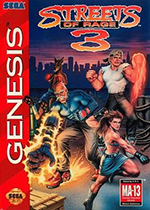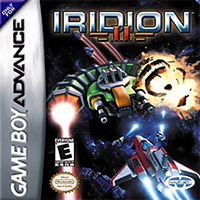Re: Games Beaten 2025
Posted: Mon Jan 20, 2025 9:02 pm
Previous Years: 2015 2016 2017 2018 2019 2020 2021 2022 2023 2024
1. Tomb Raider II Remastered - PC
2. Tomb Raider III Remastered - PC
3. Blade Chimera - Switch
4. Cyber Shadow - Switch
5. Signalis - Switch
Signalis is a survival horror game that harkens back to the PS1 days, deemphasizing combat, having a bunch of puzzles to solve, and have the horror come from the messed up stuff going on in the world, rather than specifically the enemies. And man, is it a good one, with fantastic visual design. It's also a bit inscrutable, but not in a bad way.
The game opens with Elster, a synthetic human, waking up on her crashed survey ship. Her human captain is missing, so she sets off to try and find her. After finding a mysterious hole she suddenly has a consciousness flash to another area, where again, she's searching for her companion. So begins an exploration through a facility falling apart and trying to figure out what is and isn't real. The game takes a lot of cues from the broadcast ending of Evangelion, so don't expect anything to be simple. That said, the worldbuilding is pretty straightforward, and it paints a very interesting picture of the society.
The game uses late PS1-inspired graphics with a top downish viewpoint. Similar to Resident Evil, it is room based, with enemies confined to rooms and sometimes enemies can get back up after a period of time (if not burned beforehand). Dodging enemies is recommended, especially in visit-once rooms. You have limited inventory space and can make use of storage boxes in the save rooms to manage your inventory. Attacking enemies requires you to ready the weapon before hitting trigger, and the game will indicate if you are actually on target or not. Unlike Resident Evil, the auto aim is not very generous; you pretty much have to be nearly on target to get it to lock, which makes combat much harder when things start going down and enemies get in your face. But, as said, you're best off avoiding combat outside of the handful of boss fights.
Progression is gated through various key items, but many of those key items require you to solve puzzles to acquire them. Some are the easy RE-style "combine these items to get the thing you need", while others require you to decipher codes from files and the environment. It all feels pretty good; nothing too moon logic like old adventure games, but you do need to think a bit. There's also one zone that has no map and has some non-Euclidean geometry, so I'd recommend making a map.
Overall, it's a very fun experience if you're a fan of classic survival horror. You probably won't be fully sure of the story, but the beats you do pick up aren't going to leave you feeling warm and fuzzy.
1. Tomb Raider II Remastered - PC
2. Tomb Raider III Remastered - PC
3. Blade Chimera - Switch
4. Cyber Shadow - Switch
5. Signalis - Switch
Signalis is a survival horror game that harkens back to the PS1 days, deemphasizing combat, having a bunch of puzzles to solve, and have the horror come from the messed up stuff going on in the world, rather than specifically the enemies. And man, is it a good one, with fantastic visual design. It's also a bit inscrutable, but not in a bad way.
The game opens with Elster, a synthetic human, waking up on her crashed survey ship. Her human captain is missing, so she sets off to try and find her. After finding a mysterious hole she suddenly has a consciousness flash to another area, where again, she's searching for her companion. So begins an exploration through a facility falling apart and trying to figure out what is and isn't real. The game takes a lot of cues from the broadcast ending of Evangelion, so don't expect anything to be simple. That said, the worldbuilding is pretty straightforward, and it paints a very interesting picture of the society.
The game uses late PS1-inspired graphics with a top downish viewpoint. Similar to Resident Evil, it is room based, with enemies confined to rooms and sometimes enemies can get back up after a period of time (if not burned beforehand). Dodging enemies is recommended, especially in visit-once rooms. You have limited inventory space and can make use of storage boxes in the save rooms to manage your inventory. Attacking enemies requires you to ready the weapon before hitting trigger, and the game will indicate if you are actually on target or not. Unlike Resident Evil, the auto aim is not very generous; you pretty much have to be nearly on target to get it to lock, which makes combat much harder when things start going down and enemies get in your face. But, as said, you're best off avoiding combat outside of the handful of boss fights.
Progression is gated through various key items, but many of those key items require you to solve puzzles to acquire them. Some are the easy RE-style "combine these items to get the thing you need", while others require you to decipher codes from files and the environment. It all feels pretty good; nothing too moon logic like old adventure games, but you do need to think a bit. There's also one zone that has no map and has some non-Euclidean geometry, so I'd recommend making a map.
Overall, it's a very fun experience if you're a fan of classic survival horror. You probably won't be fully sure of the story, but the beats you do pick up aren't going to leave you feeling warm and fuzzy.

